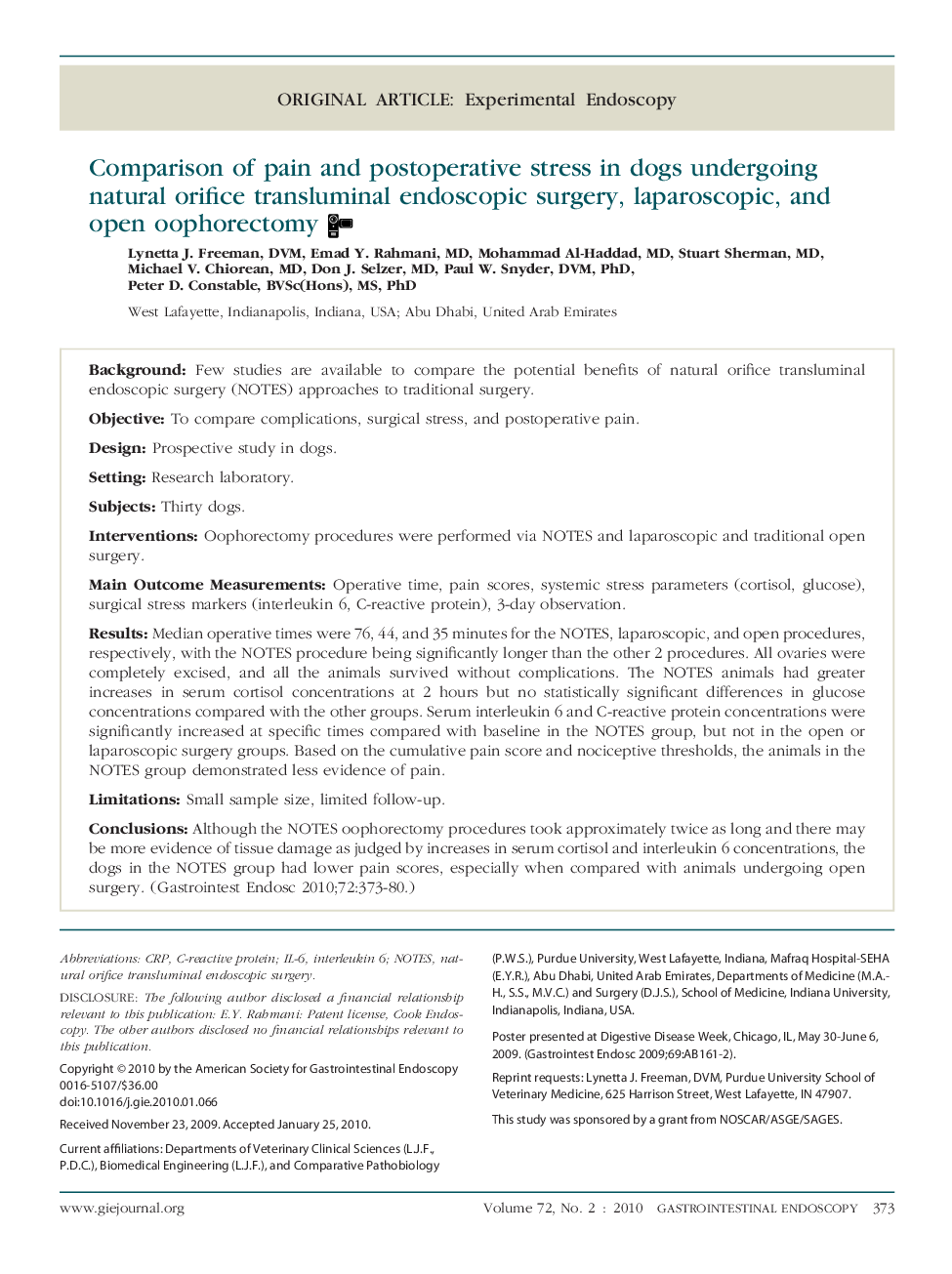| Article ID | Journal | Published Year | Pages | File Type |
|---|---|---|---|---|
| 6098643 | Gastrointestinal Endoscopy | 2010 | 8 Pages |
BackgroundFew studies are available to compare the potential benefits of natural orifice transluminal endoscopic surgery (NOTES) approaches to traditional surgery.ObjectiveTo compare complications, surgical stress, and postoperative pain.DesignProspective study in dogs.SettingResearch laboratory.SubjectsThirty dogs.InterventionsOophorectomy procedures were performed via NOTES and laparoscopic and traditional open surgery.Main Outcome MeasurementsOperative time, pain scores, systemic stress parameters (cortisol, glucose), surgical stress markers (interleukin 6, C-reactive protein), 3-day observation.ResultsMedian operative times were 76, 44, and 35 minutes for the NOTES, laparoscopic, and open procedures, respectively, with the NOTES procedure being significantly longer than the other 2 procedures. All ovaries were completely excised, and all the animals survived without complications. The NOTES animals had greater increases in serum cortisol concentrations at 2 hours but no statistically significant differences in glucose concentrations compared with the other groups. Serum interleukin 6 and C-reactive protein concentrations were significantly increased at specific times compared with baseline in the NOTES group, but not in the open or laparoscopic surgery groups. Based on the cumulative pain score and nociceptive thresholds, the animals in the NOTES group demonstrated less evidence of pain.LimitationsSmall sample size, limited follow-up.ConclusionsAlthough the NOTES oophorectomy procedures took approximately twice as long and there may be more evidence of tissue damage as judged by increases in serum cortisol and interleukin 6 concentrations, the dogs in the NOTES group had lower pain scores, especially when compared with animals undergoing open surgery.
